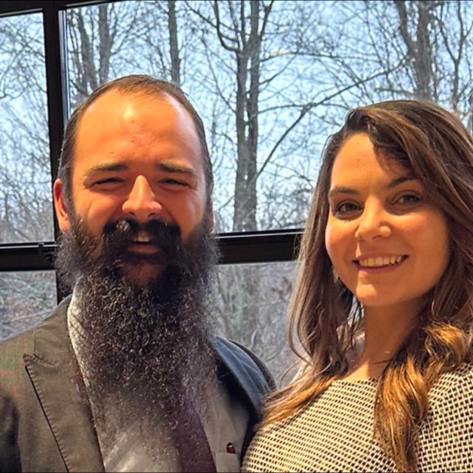God’s promises are the kindling which fuels the fire of joy within the souls of His saints. When life is like a desolate desert of despair and discouragement, His unbreakable promises are rivers of refreshing gladness. They are the rainbows that bring us rest and relief after the heavy rains of tribulation. Like the sun rising after a night of terrifying storms, the promises of God give us a warm assurance that everything is going to be alright.
And one particular promise in the pages of Scripture that produces deep-seated and divine joy is God’s promise to preserve those who have been born again. God cannot lie and He has sworn in the testimony of Scripture that if He saved you, He will keep you. As long as Jesus remains at the right hand of the Father, then nothing can pluck you from the hand of His sovereign grace. If you are saved by grace, you will be kept by grace until the day when Jesus Christ returns. That is the joy-producing promise that Paul points believers to in the sixth verse of Philippians 1:
“Being confident of this very thing, that he which hath begun a good work in you will perform it until the day of Jesus Christ” (v. 6, KJV).
The Start of Salvation
“What gives me holy joy that the world cannot take away,” said Paul, “is knowing that God will always finish what He starts, especially the work of salvation He began in you.” According to Paul, your salvation is something that God initiated. He started it, not you. He ran toward you before you ran toward Him. He planned your salvation long ago in eternity past before you ever made plans to call upon His name for grace and mercy (Eph. 1:4). He chose you before you chose Him. “He first loved us,” wrote John in 1 John 4:19a.
Think about the day you were saved for a moment. Perhaps you were kneeling at an old-fashioned altar or sitting with your head bowed in a church pew. Perhaps you were at church camp or Vacation Bible School, or in your parents’ backyard like I was.
Now, think about this: did you plot the day of your salvation on a calendar? Did you plan to repent of your sins and trust in Christ like you plan a doctor’s appointment, three-months in advance? Did you rehearse what you were going to say and make sure everything was just right?
Of course not! Your salvation story and mine is just like the apostle Paul’s—we were straying like lost sheep and minding our own business, and out of nowhere, we had a literal come-to-Jesus meeting (cf. Acts 9:1-9). Salvation wasn’t on our calendar—it was on God’s. And when the appointed time came for our hearts to be arrested by conviction and converted by grace, the Lord Jesus interrupted our selfish lives and drew us to Himself. The Lord opened our hearts like Lydia, the first Philippian convert (Acts 16:14). Indeed, our salvation was not a result of works, as Paul said in Ephesians 2:8-9. Instead, it was and is completely owing to the good work begun by a good and gracious God.
And knowing that God extended undeserved grace and mercy to sinners like us who deserve wrath and judgment ought to be sufficient to foster divine joy in our souls. But that is merely 50% of the precious promise which Paul calls our attention to. The other half that fuels joy all the more is this: “he who began a good work in you will bring it to completion at the day of Jesus Christ.”
The Sustenance of Salvation
The God who saved you is the same God who will sustain you to the very end. It is more probable for the oceans to dry, the sun to cease shining, and God to no longer be God, than for you to lose your salvation. There is no “undo” button for conversion. You cannot be saved and lost and saved again.
You will never fall off the potter’s wheel as clay being conformed to Christ. You can never evict the Holy Spirit from the home of your heart. You can never erase your name from Lamb’s Book of Life. You cannot loosen God’s saving grip on your soul. You cannot renounce your citizenship in heaven.
Our Lord Jesus promised as much in the Gospel of John when he said, “All that the Father gives me will come to me, and whoever comes to me I will never cast out. For I have come down from heaven, not to do my own will but the will of him who sent me. And this is the will of him who sent me, that I should lose nothing of all that he has given me, but raise it up on the last day” (John 6:37-39).
And Christ also assured us in John 10, “My sheep hear my voice, and I know them, and they follow me. I give them eternal life, and they will never perish, and no one will snatch them out of my hand” (John 10:27-28).
Salvation is a work God started, and He will finish it. An artist may have half-completed paintings in his studio for lack of time and inspiration. A woodworker may have half-built bookcases and desks in his shop for lack of time and resources. But there are no half-Christians in the workshop of salvation. God makes whole Christians out of unholy sinners and He will sustain them wholly by His grace until Christ Jesus returns.
God makes whole Christians out of unholy sinners and He will sustain them wholly by His grace until Christ Jesus returns.
Tweet
This is not to say that we are easy clay to sculpt. This does not mean that we don’t try to jump off the potter’s wheel occasionally. This does not mean that the Holy Spirit’s living conditions in our hearts are clean and comfortable. God’s promise to keep us until the end does not exempt us from sin or serious falls in the Christian life. There will be times when we fall hard and hit rock bottom, committing atrocious sins like Peter, who denied that he even knew Christ. But we shall never fall away because, if we know Christ, we will always return in repentance just like Peter did when he wept bitterly.
This also does not imply that we can sit back leisurely and expect God to do all the work without any participation on our part. Just one chapter later, Paul commands: “work out your own salvation with fear and trembling” (Phil. 2:12b). He likewise commanded in Colossians that we absolutely must “continue in the faith” (Col. 1:23). This means that we must make an effort—we must obey God’s word, fellowship with God’s people, strive for holiness, devote ourselves to good works, and everything else that the Bible commands.
But even then, the effort we put forth is enabled and entirely dependent upon the same grace that saved us in the first place. That’s why in the very next verse of that same chapter, Paul says, “For it is God which worketh in you both to will and to do of his good pleasure” (Phil. 2:13, KJV).
And God will work in you to keep you saved until the end of history and the beginning of eternity. That’s why Paul adds at the end, “until the day of Jesus Christ.” The glorious day when Christ returns bodily and triumphantly—that is when you will be a finished product. Paul said it best in Romans 8: “For those whom he foreknew he also predestined to be conformed to the image of his Son, in order that he might be the firstborn among many brothers. And those whom he predestined he also called, and those whom he called he also justified, and those whom he justified he also glorified” (Romans 8:29-30). That is the golden chain of salvation! The Lord planned your salvation in eternity past, accomplished your salvation in redemptive past—2,000 years ago, and He will finish it in the future when He glorifies you.
And here’s the point to all of this: that day should give us joy this day. Sin and Satan often steal our joy when they whisper in our ear, “You’ll never make it. You wouldn’t have done that if you are a Christian. You’re probably not saved to begin with.” It is easy to become joyless when you focus only on the bad works—the sins that put you behind and hinder progress in your walk with the Lord.
And while we shouldn’t make excuses for our sins or minimize them, we should remember that we are a work in progress—a work that God will one day complete. That ought to cause the wells of joy in our souls to burst. The covenant promise of God to keep us in the grip of grace should bring us holy relief, assurance, and glee.




